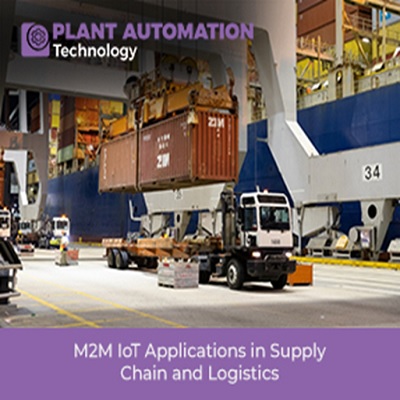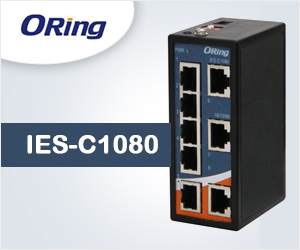M2M IoT Applications in Supply Chain and Logistics

Introduction
The integration of Machine-to-Machine (M2M) and Internet of Things (IoT) technologies is transforming industries across the board, and the supply chain and logistics sector is no exception. By leveraging M2M IoT applications, businesses experience enhanced efficiency, streamlined operations, and improved customer satisfaction. This article delves into the various ways M2M IoT revolutionizes supply chains and logistics.
Real-time tracking and supply chain visibility
One of the significant challenges in supply chain and logistics is maintaining visibility throughout the process. M2M IoT offers real-time tracking capabilities, allowing businesses to monitor the movement of goods, assets, and vehicles at every stage of the supply chain. By deploying sensors and GPS devices, companies can gather and analyze data regarding location, temperature, humidity, and more. This ensures accurate tracking, reduces theft, minimizes delays, and enables proactive decision-making to optimize the supply chain.
Inventory Management and Warehouse Automation
Effective inventory management is crucial for efficient supply chain operations. M2M IoT enables businesses to automate inventory tracking, ensuring accurate stock levels, and minimizing stockouts or excess inventory. IoT sensors monitor stock levels in real-time, triggering automatic reordering when thresholds are reached. This streamlines the replenishment process, reduces manual errors, and enables just-in-time inventory management, leading to cost savings and improved efficiency.
| Also Read: The M2M Value Chain and Diverse IoT Applications |
Furthermore, warehouse automation plays a vital role in optimizing supply chain operations. M2M IoT technologies, such as RFID (Radio-Frequency Identification) tags and smart shelves, enable automated inventory management, picking, and packing processes. These technologies enhance accuracy, speed up operations, and enable better space utilization within warehouses.
Fleet Management and Route Optimization
Fleet management is critical for timely deliveries and cost-effective logistics. M2M IoT solutions provide real-time data on vehicles, including location, fuel consumption, engine health, and driver behavior. By analyzing this data, businesses can optimize routes, reduce fuel consumption, minimize vehicle downtime, and improve overall fleet efficiency. Additionally, M2M IoT enables predictive maintenance by monitoring vehicle health, allowing proactive repairs and minimizing unexpected breakdowns.
|
Also Read : Comparing M2M Protocols: MQTT vs. CoAP in IoT Applications |
Data Analytics for Demand Forecasting and Decision-Making
Data analytics is a powerful tool in supply chain and logistics, and M2M IoT integration creates copious amounts of significant data. Businesses can gain priceless insights into demand patterns, customer behavior, and operational performance by properly leveraging this data using advanced analytics approaches. Companies may use this data to make informed, data-driven decisions, properly estimate demand, identify areas for improvement, and optimize supply chain processes. Furthermore, data analytics enables predictive analytics, allowing proactive steps to prevent interruptions and delays before they occur.
Last-mile delivery and customer satisfaction
Last-mile delivery is a critical phase in the supply chain, and M2M IoT offers numerous benefits in this area. By utilizing smart devices and sensors, businesses can track deliveries in real-time, provide customers with accurate delivery updates, and even offer delivery customization options. Additionally, M2M IoT can facilitate secure and contactless delivery mechanisms, such as smart lockers or drone deliveries. These innovations enhance customer satisfaction, reduce delivery errors, and increase operational efficiency.
Supply chain optimization and collaboration
Supply chain optimization is a continuous process, and M2M IoT plays a pivotal role in achieving this objective. By integrating M2M IoT technologies across various supply chain partners, including suppliers, manufacturers, distributors, and retailers, businesses can foster seamless collaboration and information exchange. This real-time collaboration enhances supply chain visibility, reduces lead times, improves forecasting accuracy, and enables efficient demand-driven supply chain operations.
Smart packaging and traceability
M2M IoT also enables smart packaging solutions that enhance traceability and ensure product integrity throughout the supply chain. By incorporating sensors and RFID tags into packaging, businesses can monitor and track various parameters such as temperature, humidity, and shock. This allows for real-time product condition monitoring, reducing spoilage or damage risk. Additionally, smart packaging enables easy authentication and traceability, combating counterfeiting and ensuring product safety.
| Also Read: Cybersecurity Trends and Technologies in Industrial Automation |
Supply chain resilience and risk management
In an increasingly complex global supply chain landscape, disruptions and risks are inevitable. M2M IoT technologies provide valuable insights into supply chain resilience and risk management. By continuously monitoring and analyzing data from multiple touchpoints, businesses can identify potential bottlenecks, vulnerabilities, and supply chain risks. This allows for proactive risk mitigation strategies, such as alternative sourcing, inventory diversification, and contingency planning. This ensures continuity of operations even during unforeseen events.
Sustainability and environmental impact
M2M IoT plays a crucial role in promoting sustainability and reducing the environmental impact of supply chain and logistics operations. By optimizing routes and reducing empty miles through real-time tracking and fleet management, businesses can minimize fuel consumption and greenhouse gas emissions. Furthermore, IoT-enabled sensors can monitor energy usage, waste management, and carbon footprints, enabling companies to identify opportunities for efficiency improvements and implement sustainable practices.
Blockchain Integration for Enhanced Transparency
The integration of M2M IoT with blockchain technology offers enhanced transparency and trust across the supply chain. Blockchain provides an immutable and decentralized ledger that records every transaction and data exchange. By combining M2M IoT data with blockchain, businesses can create transparent and auditable supply chain records, ensuring traceability, authentication, and integrity of information. This integration can help combat counterfeit products, improve supply chain visibility, and facilitate ethical sourcing.
Regulatory compliance and quality control
Supply chain management requires regulatory standards and product quality. M2M IoT technologies help achieve regulatory compliance and quality control by providing real-time monitoring and data collection. Sensors embedded in the supply chain can track critical parameters such as temperature, humidity, and storage conditions. This ensures adherence to industry requirements and product quality standards. This reduces the risk of non-compliance penalties, product recalls, and customer dissatisfaction.
| Also Read: The Impact of Industrial Automation on Global Supply Chains: Advantages, Challenges, and Future Developments |
Integration with Emerging Technologies
M2M IoT can also be integrated with other emerging technologies to unlock new opportunities in supply chain and logistics. For example, combining M2M IoT with artificial intelligence (AI) enables predictive analytics, anomaly detection, and intelligent decision-making. AI algorithms can analyze vast amounts of IoT data, identify patterns, and provide valuable insights for optimizing supply chain operations. Additionally, the integration of M2M IoT with robotics and automation technologies can further streamline warehouse operations, picking, and packing processes.
| Also Read: The Role of Data Analytics in the M2M Value Chain |
Conclusion
The application of M2M IoT in supply chain and logistics is transforming businesses, enabling real-time tracking, inventory optimization, data-driven decision-making, and enhanced customer satisfaction. By embracing these technologies and leveraging their potential, organizations can gain a competitive edge in an increasingly interconnected and fast-paced global marketplace. As M2M IoT continues to evolve, the supply chain and logistics industry can expect further advancements in efficiency, sustainability, and risk management. This will drive innovation and reshape supply chain operations.











